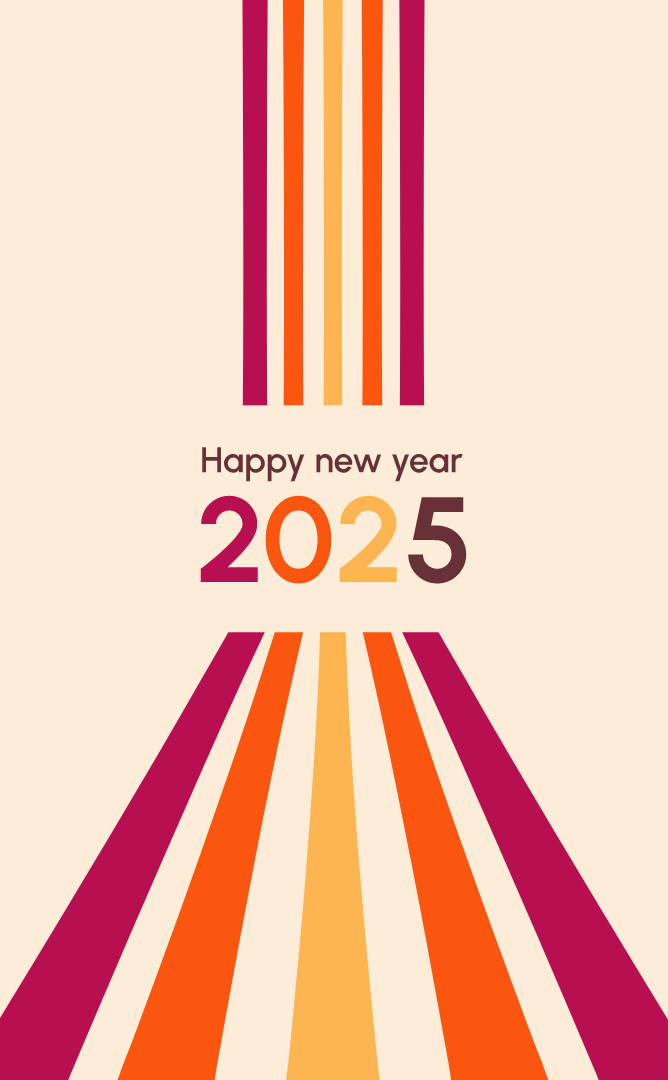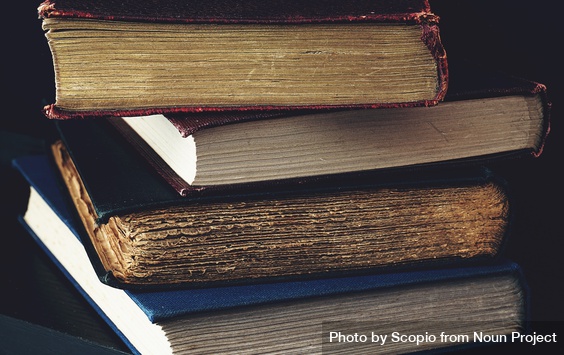|
ISSN Newsletter n° 135 - December 2024
|
|
 ISSN news |
|
|
We wish you a Happy New Year!
|
In 2025, ISSN International Centre will celebrate its jubilee. This will be an opportunity to retrace with you our fifty-year history.

Click on the link to open our e-card.
|
|
|
|
|
Using the ISSN Portal to Check the Status of Your Journal Collections Regarding Digital Preservation
|
The Keepers Registry, managed by the ISSN International Centre since 2019, monitors preservation for digital and digitized serials, including scholarly journals. It aggregates data from sixteen partner archiving agencies, covering around 70,000 titles as of November 2022. The ISSN Centre is developing a service for librarians to upload journal metadata and retrieve preservation data, including preserving agencies, covered years, and completeness of archived content. A case study from the University of California, Davis revealed only 40% of its collection is preserved by Keepers.
This article authored by Gaelle Bequet (ISSN International Centre), Michelle Polchow (University of California, Davis) and Shannon Keller (U.S. Department of State), was presented at NASIG 2023 Conference whose proceedings are published by the University of Michigan.
|
|
|
|
|
CAICYT organiza la primera Clínica de Revistas para la Facultad de Ciencias Humanas de la Universidad Nacional de San Luis (Argentina)
|
El 25 de noviembre 2024 se realizó la primera Clínica de Revistas organizada por el CAICYT (Centro Argentino de Información Científica y Tecnológica) en la Facultad de Ciencias Humanas de la Universidad Nacional de San Luis. El objetivo fue reunir a los responsables de las revistas de la Facultad para trabajar en un Plan de fortalecimiento de sus publicaciones y portal. Participaron autoridades y miembros de varias revistas, abordando temas como el diagnóstico de las publicaciones, el Portal, y aspectos técnicos sobre el ISSN y criterios de calidad. Esta iniciativa reafirma el compromiso del CAICYT con la profesionalización de las publicaciones científicas argentinas.
|
|
|
|
|
ISSN portal data used for a paper at the Open Science Conference in the South (Cape Town, 9-11 December 2024)
|
Innocent Azilan (Institut méditerranéen des sciences de l’information et de la communication, France), Hanae Hroul (Ecole des Sciences de l’Information, Morocco), Nadia Barnoussi (Ecole des Sciences de l’Information, Morocco) and Pascal Aventurier (IRD, Institut de Recherche pour le Développement, France) presented their research on the internationalisation and visibility of African Open Access journals at the Open Science Conference in the South, held in South Africa from 9 to 11 December.
This research has been made possible by the availability of data from the ISSN portal. The programme of the conference is available.
|
|
|
|
 Digital preservation |
|
|
Portico highlighted in Nature’s Call for Action to Preserve Digital Research
|
In Act now to stop millions of research papers from disappearing, Nature’s editorial board calls on the global research community to take steps to better preserve the growing number of research papers being produced each year, with a particular focus on at-risk publications.
Citing a study that says at least 2 million research articles are not being preserved, the editorial highlights three ways to help address the challenge.
|
|
|
|
|
Project Exploring Resource Sharing Services Kicks Off
|

At the 2024 HathiTrust Member Meeting , attendees learned about a new strategic project aimed at expanding lawful access to in-copyright works. The first phase of a multi-year initiative to develop a resource sharing service (e.g., interlibrary loan, document delivery) using HathiTrust digital content is now launching. The service will allow member libraries to retrieve scans of chapters and articles from copyrighted works in HathiTrust, provided they hold a print copy. This will help reduce the workload for interlibrary loan and document delivery units, particularly in light of budget cuts and staffing challenges.
|
|
|
|
 Libraries |
|
|
AI Metadata Assistant preview initiated for all Alma customers
|
Ex Libris, part of Clarivate, has announced the availability of the AI Metadata Assistant for all Alma customers. This tool, integrated into the Alma Metadata Editor as part of the November release, uses generative AI to assist catalogers by providing metadata suggestions for bibliographic records. The AI processes information about library resources, balancing efficiency and accuracy. Currently, it supports MARC 21 records in English, using Library of Congress authorities, with plans to expand to more languages and vocabularies. Over 300 libraries worldwide have tested the tool, and general availability is expected in 2025.
|
|
|
|
 Open Science |
|
|
Indian Cabinet approves One Nation One Subscription (ONOS)
|

The One Nation One Subscription (ONOS) scheme, launched by the Government of India, is a groundbreaking initiative designed to provide nationwide access to the latest scholarly research articles and academic journals. This initiative aims to foster scientific research and innovation by offering affordable, country-wide access to high-quality academic content. Through ONOS, students, faculty, and researchers in universities, colleges, and research organizations will benefit from seamless access to valuable resources that drive innovation in various fields.
|
|
|
|
 Open Access |
|
|
Geographical and Disciplinary Coverage of Open Access Journals: OpenAlex, Scopus and WoS
|
This study compares the geographical and disciplinary coverage of Open Access (OA) journals across three databases: OpenAlex, Scopus, and the Web of Science (WoS). Using the ROAD database as a reference, which indexes 62,701 OA resources, the study found that OpenAlex indexes 34,217 journals, compared to 7,351 in Scopus and 6,157 in WoS. Notably, OpenAlex includes 25,658 exclusive journals, while WoS and Scopus have far fewer. Geographically, WoS and Scopus favor Europe, North America, and Oceania, while OpenAlex offers broader inclusivity but still shows biases, particularly underrepresenting regions like Africa and some emerging countries.
|
|
|
|
|
The value of open metadata: how DOAJ supports and is supported by the community
|
As an adopter of the Principles of Open Scholarly Infrastructure and a supporter of the Barcelona Declaration on Open Research Information, DOAJ is committed to making its metadata openly available for the community’s use. DOAJ’s metadata is reused across library systems, discovery services, search engines and research tools that help identify quality open-access journals.
In 2024, DOAJ has received sustaining support from Digital Science, EBSCO, NERAC, OA.Works. OCLC, OurResearch, SciFree, Sirsi Dynix and others. Their support contributes directly to DOAJ’s work in evaluating journals and curating metadata.
|
|
|
|
 Scholarly Communication |
|
|
New report explores the impact of GenAI on scholarly publishing
|
In a landmark analysis of the future of scholarly communication, Ithaka S+R has released a new report, A Third Transformation? Generative AI and Scholarly Publishing, investigating the profound effects of generative AI (GenAI) on academic publishing. The report, supported by STM Solutions and leading publishers such as the American Chemical Society, IEEE, Elsevier, Springer Nature, Taylor & Francis Group, and Wiley, highlights the rapid evolution of GenAI and its potential to reshape research workflows, operational strategies, and communication processes.
|
|
|
|
 Standards |
|
|
The National Library of Sweden becomes the first national library to fully transition to linked data
|

The National Library of Sweden (Kungliga Biblioteket) has introduced a new Libris catalog, utilizing Bibframe 2.0 and linked open data. This format enhances the web’s understanding of library collections, allowing for easier access and highlighting of rich information. As the first national library to switch to Bibframe 2.0, Libris will provide efficient cataloguing and a comprehensive view of library collections.
|
|
|
|
 Events |
|
|
Academic Publishing in Europe APE 2025 (Berlin, Germany, 14-15 January 2025)
|
The Academic Publishing in Europe conference will celebrate two decades of achievement and innovation in the scholarly publishing world around the topic Scholarly Communication: Reframing the Dialogue.
View the program here and get your ticket here!
|
|
|
|
|